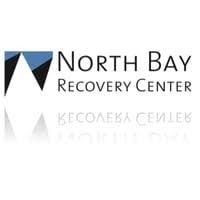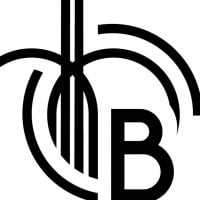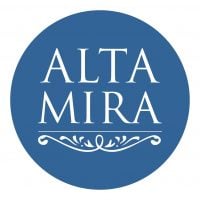Paradigm Treatment - Teen & Young Adult Mental Health
Drug Rehab Center in San Rafael, California
- Dual Diagnosis
- Drug Addiction
- Alcoholism
Paradigm Treatment is a leading residential treatment provider in California, specializing in evidence-based approaches to addiction, dual diagnosis, and mental health for teens and young adults, with accreditations and licensed by recognized organizations.
About Paradigm Treatment - Teen & Young Adult Mental Health in California
Paradigm Treatment - Teen & Young Adult Mental Health is a highly recognized drug treatment center located in San Rafael, California. The facility holds several certifications, including accreditation from JCAHO (Joint Commission on Accreditation of Healthcare Organizations), CARF (Commission on Accreditation of Rehabilitation Facilities), and holds a valid State License. With a capacity to accommodate 40 individuals, Paradigm Treatment is dedicated to helping teenagers and young adults struggling with alcoholism, drug addiction, and dual diagnosis. They offer residential and inpatient levels of care, ensuring that their patients receive comprehensive and personalized treatment plans.
Paradigm Treatment - Teen & Young Adult Mental Health provides a range of services to address addiction and substance abuse in a supportive and compassionate environment. They offer residential and inpatient levels of care, providing a safe and structured setting for individuals to focus on their recovery. The facility specializes in treating alcoholism, drug addiction, and dual diagnosis cases, ensuring that each patient receives integrated care for their specific needs. Along with evidence-based therapies and counseling, Paradigm Treatment also provides individualized treatment plans, family therapy, relapse prevention techniques, and aftercare planning to support long-term recovery. Their services aim to help individuals regain control of their lives and achieve lasting sobriety.
Genders
Ages
Modality
Additional
Accreditations
State License

JCAHO

CARF
The Commission on Accreditation of Rehabilitation Facilities (CARF) is a non-profit organization that specifically accredits rehab organizations. Founded in 1966, CARF's, mission is to help service providers like rehab facilities maintain high standards of care.
Conditions and Issues Treated
Levels of Care Offered
This center offers a variety of custom treatment tailored to individual recovery. Currently available are Inpatient, Residential, with additional therapies available as listed below.
Going to an inpatient rehab facility means living there while all aspects of addiction or co-occurring disorder get addressed. The treatment involves medical supervision, therapy, and future planning.
This type of rehabilitation provides a drug-free environment for people who struggle with chronic/long-term addiction without having access to drugs outside the center (or their own home). It takes away any distractions because they live there 24 hours per day. If someone is trying to break out old habits, which could lead them back into substance abuse, things like jobs or school can be put on hold until after they complete their stay to focus solely on recovery.
Residential treatment programs are those that offer housing and meals in addition to substance abuse treatment. Rehab facilities that offer residential treatment allow patients to focus solely on recovery, in an environment totally separate from their lives. Some rehab centers specialize in short-term residential treatment (a few days to a week or two), while others solely provide treatment on a long-term basis (several weeks to months). Some offer both, and tailor treatment to the patient’s individual requirements.
Therapies & Programs
Individual therapy is a form of counseling where you meet with a trained professional one-on-one. Meeting with a therapist in this setting allows for a personal and trusting relationship to be built. This allows the patient to open up about sensitive or private issues they may not feel comfortable discussing in a group. Individual therapy helps identify the root causes of your addiction, which can help prevent relapse.
Family therapy is often done alongside drug treatment to help addicts stay sober. The goal of family therapy for drug addiction is to create an environment where communication can happen without judgment, hostility, or blame. The therapist will sit with the family so they can learn how to communicate differently and provide new tools for dealing with emotions so that people don’t want to drink or do drugs. It’s important for families to focus on relapse prevention plans during treatment so that if the addict feels like they want to use again, they’ll know what steps they need to take together to prevent it from happening again in the future.
Group therapy sessions are another common addiction recovery service. These group sessions typically involve six to 12 addicts who meet regularly with a trained professional for support and guidance.
During these sessions, the group shares their experiences with one another and provides feedback that can help each member avoid relapse or overcome specific obstacles they are facing in their recovery process. With this type of support and guidance, addicts can feel like they are part of a community that understands their struggles and will help them get through the hard times.
Dialectical Behavior Therapy was developed in the 1980s to treat chronically suicidal individuals. It is a cognitive-behavioral therapy that combines standard DBT with strategies derived from Zen Buddhism, such as mindfulness training.
DBT has been adapted for use with other types of psychiatric problems, including eating disorders, substance abuse disorders, borderline personality disorder, posttraumatic stress disorder (PTSD), and other personality disorders. Dialectical Behavior Therapy is considered a psychosocial treatment of BPD. This means that while it can be used alone or in conjunction with drug treatments, DBT does not rely on medications to treat the disorder. Instead, DBT aims to help patients change their thinking and behavior.
Cognitive Behavioral Therapy (CBT) focuses on the underlying thoughts and behaviors that caused the problem of addiction in the first place and may cause a relapse. Negative feelings are common in drug abuse disorders, but they can lead to co-occurring disorders if not recognized. CBT involves strategies that help to change the behavior pattern by restructuring negative thoughts into positive ones. It helps to remove these feelings, and it provides long-term benefits. Also, CBT promotes self-awareness and self-control. It can be administered as a monotherapy or as part of combination therapy.
CBT can improve the patient’s mood, reduce drug cravings and boost success rates on treatment plans. Regular practice can help individuals handle negative attitudes, thoughts, and feelings without turning to drugs or alcohol. The core belief of Cognitive Behavioral Therapy (CBT) is that one’s moods, behaviors, and actions are all connected. Individuals can improve their quality of life using CBT. It helps addicts understand the patterns of thought and feelings that cause them to use drugs or alcohol and develop a healthy response.
Patient Experience
Experiential Therapy at Paradigm Treatment - Teen & Young Adult Mental Health
Drug addiction causes the formation of abnormal connections between neurons in the brain to form due to repeated exposure to drugs. These connections are responsible for addictive behaviors to drugs. Experiential therapy is done with patients individually and is different from traditional talk therapy. This therapy can help people revisit past traumas, heal, and move on in life in a more authentic way.
Experiential therapy uses activities to recreate experiences that may have caused trauma or negative emotions. These activities include role-playing, arts and crafts, animal care, music, or rock climbing. The individual will gradually experience calmness and love and change their perception positively through this therapy. Other than drug addiction, experiential therapy can be helpful for behavioral or eating disorders.
Payment Options Accepted
For specific insurance or payment methods please contact us.
Is your insurance accepted?
Ask an expert, call (888) 674-0062
Additional Details
Specifics, location, and helpful extra information.
San Rafael, California 94901 Phone Number+1 855-921-4973 Meta DetailsUpdated November 25, 2023
Staff Verified
Paradigm Treatment - Teen & Young Adult Mental Health Patient Reviews
There are no reviews yet. Be the first one to write one.
San Rafael, California Addiction Information
More than 3 million of California's citizens are addicted to illegal drugs. Almost 800,000 people use hard drugs, almost 5 million use marijuana, and another 2.1 million abuse alcohol every year. Other substance abuse issues such as binge drinking and teen drug use are also common. Many illegal drugs such as cocaine, heroin, methamphetamine, and marijuana are smuggled into the state from Mexico.
The most common drugs abused in San Rafael, California, are marijuana, methamphetamines, and opioids. The cost of drug addiction and abuse is estimated to be over $1 million per year in the city. In 2016, there were over 200 admissions to treatment centers for drug and alcohol abuse. There are over 19 treatment centers in San Rafael, CA. Treatment options vary depending on the severity of drug addiction.
Treatment in Nearby Cities
- Chula Vista, CA (479.2 mi.)
- Victorville, CA (375.5 mi.)
- Calabasas, CA (341.5 mi.)
- Lemon Grove, CA (475.5 mi.)
- Redlands, CA (402.6 mi.)
Centers near Paradigm Treatment - Teen & Young Adult Mental Health




The facility name, logo and brand are the property and registered trademarks of Paradigm Treatment - Teen & Young Adult Mental Health, and are being used for identification and informational purposes only. Use of these names, logos and brands shall not imply endorsement. RehabNow.org is not affiliated with or sponsored by Paradigm Treatment - Teen & Young Adult Mental Health.





